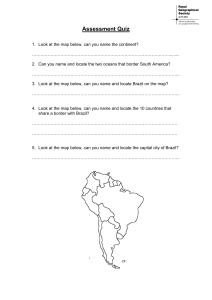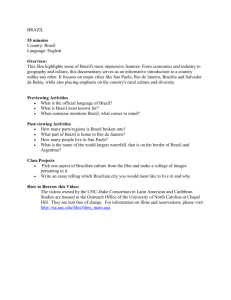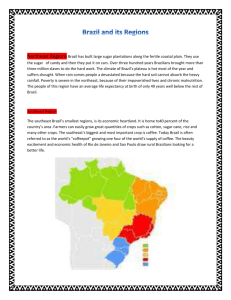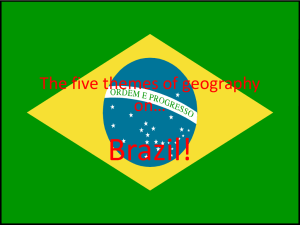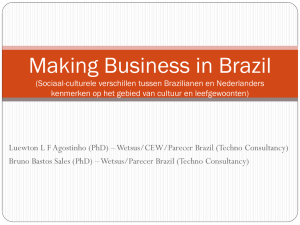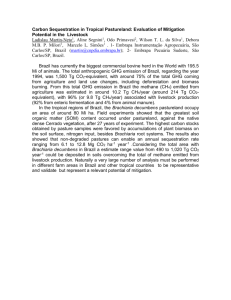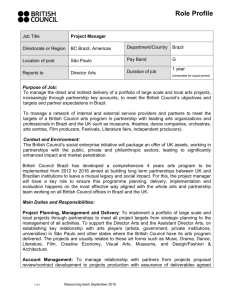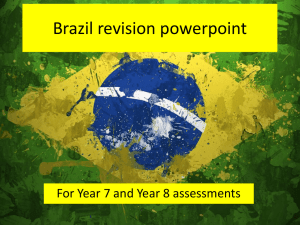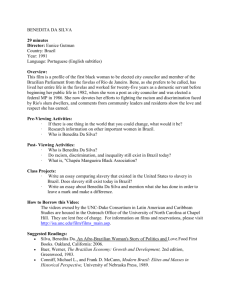Aalborg University
advertisement
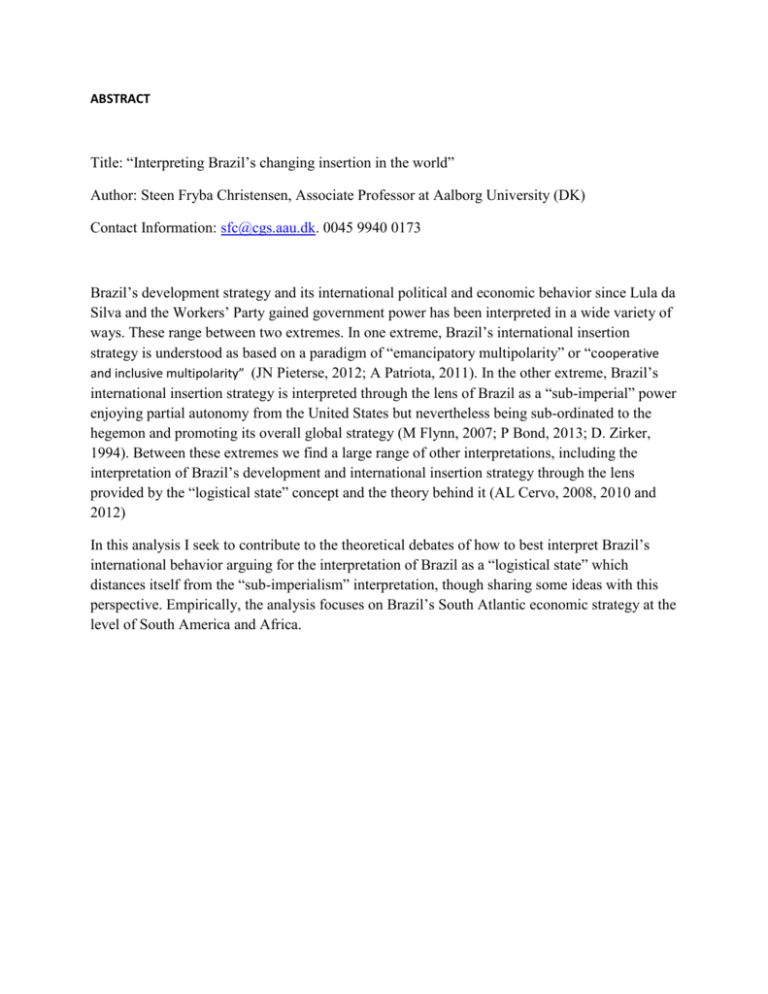
ABSTRACT Title: “Interpreting Brazil’s changing insertion in the world” Author: Steen Fryba Christensen, Associate Professor at Aalborg University (DK) Contact Information: sfc@cgs.aau.dk. 0045 9940 0173 Brazil’s development strategy and its international political and economic behavior since Lula da Silva and the Workers’ Party gained government power has been interpreted in a wide variety of ways. These range between two extremes. In one extreme, Brazil’s international insertion strategy is understood as based on a paradigm of “emancipatory multipolarity” or “cooperative and inclusive multipolarity” (JN Pieterse, 2012; A Patriota, 2011). In the other extreme, Brazil’s international insertion strategy is interpreted through the lens of Brazil as a “sub-imperial” power enjoying partial autonomy from the United States but nevertheless being sub-ordinated to the hegemon and promoting its overall global strategy (M Flynn, 2007; P Bond, 2013; D. Zirker, 1994). Between these extremes we find a large range of other interpretations, including the interpretation of Brazil’s development and international insertion strategy through the lens provided by the “logistical state” concept and the theory behind it (AL Cervo, 2008, 2010 and 2012) In this analysis I seek to contribute to the theoretical debates of how to best interpret Brazil’s international behavior arguing for the interpretation of Brazil as a “logistical state” which distances itself from the “sub-imperialism” interpretation, though sharing some ideas with this perspective. Empirically, the analysis focuses on Brazil’s South Atlantic economic strategy at the level of South America and Africa.

